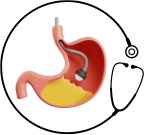Hernia Surgery
What is a Hernia Surgery ?
A hernia occurs when an internal organ or tissue pushes through a weak spot in the surrounding muscle or tissue wall — most commonly in the abdomen or groin. While some hernias may be painless at first, they can grow larger and lead to serious complications if left untreated.
Common Types of Hernias Treated

Why Surgery is Important
Leaving a hernia untreated may lead to:
Symptoms of a Hernia
Expert Hernia Surgery Care by Dr. Prashant Verma
With years of surgical experience, Dr. Prashant Verma provides safe, effective hernia treatment using modern techniques and patient-centered care. Every procedure is carefully planned to ensure comfort, recovery, and long-term success.
Hernia Treatment by Dr. Prashant Verma
Dr. Prashant Verma provides safe, effective hernia treatment using modern techniques and patient-centered care.
23+
Years of Experience
98%
Successful Surgeries



